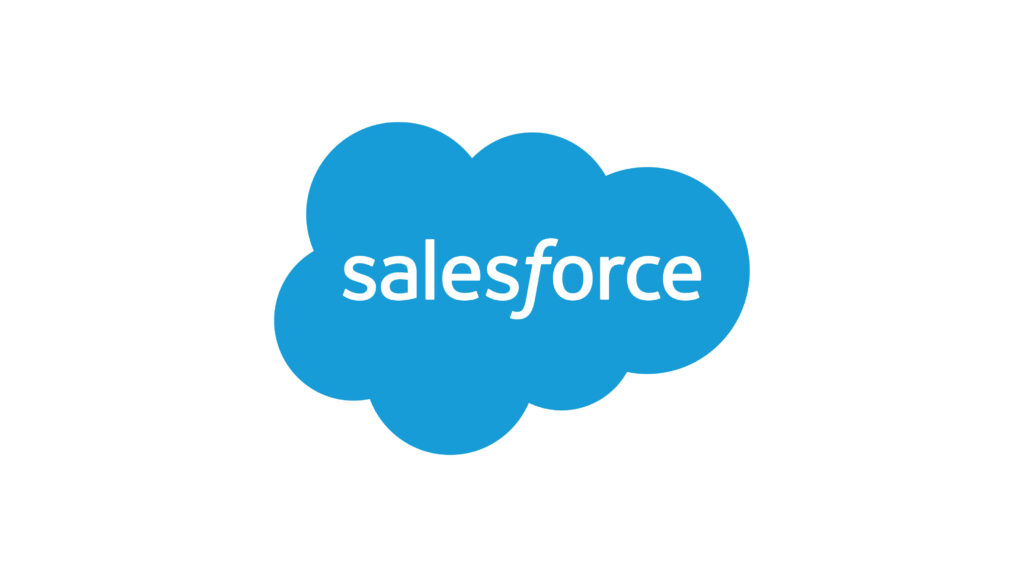Salesforce and ServiceNow are two of the biggest and most used Enterprise tools, and both hold their fair market share, Yet both often create confusion when we discuss CRM; So in this article, we will be comparing ServiceNow and Salesforce.
Salesforce was founded in 1999 by an Oracle Executive and is now used by around 150,000 companies whereas ServiceNow was founded in 2004 and is currently used by around 50,000 enterprises.
ServiceNow and Salesforce Overview

Salesforce is a customer relationship management platform that helps businesses find opportunities to better connect with their customers. It keeps track of customer information in one place and enables different departments of sales, service, and marketing to treat their customers with a personalized experience.

ServiceNow is an enterprise workflow automation platform that helps businesses stay organized and be more productive. It has a suite of low-code, customizable tools to automate tasks and processes across enterprises, improving service quality.
Let’s take this further and start by comparing their similarities.
ServiceNow and Salesforce Similarities
Salesforce is a CRM while ServiceNow is an ITSM or IT Service Management System, but both have many similarities with differentiating features, and let’s discuss the similarities first.
Customer Service Management
Salesforce has its CRM named Service Cloud, whereas ServiceNow have its Customer Service Management or CMS that helps enterprises in managing and operating customer relations & services.
Service Cloud is a full-fladge system that enables businesses to engage with customers and manage operations, and their offerings. ServiceNow CSM is focused on planning and coordinating activities between customers, support teams, and other teams which enables them to resolve customer queries more quickly.
Let’s compare them both on some of the major feature and tool aspects:-
| Features | Service Cloud | Customer Service Management |
| Selfservice | It allows you to create customized selfservice portals with a declarative interface to help customers navigate and get answers to the most commonly asked questions. | It allows the deployment of a self service portal where new cases can be opened, existing cases can be reviewed and updated. Additionally, you can deploy or integrate this to any other third-party web or mobile app and this can be done in the no-code way. |
| Omnichannel engagement | It has a centralized omnichannel system that enables its users to engage customers across email, web, application, social media, and more. We can also integrate this into any third-party applications with their APIs. | It also facilitates communication across email, web, social media, phone, and more. |
| Workflow optimizations | It has no-code solutions to automate frequent and complex business processes. | It focuses more on providing real-time visibility into agent performance, forecasting agent demand, and making sure the agents are available when customers need them. |
| Robotic process automation | Allows the automation of repetitive tasks with no-code tools. | Its task intelligence capabilities enable the automation of the process of creating, prioritizing, and investigating issues. |
| Chatbots | It has Einstein bots that offer multilingual support to customers across the channel they prefer. | It has AI-powered conversational chatbots to solve customer queries with GenAI and automated resolutions. |
Field Service Management
When it comes to field service management, Salesforce and ServiceNow both bring strong offerings to the table, but they’ve got their own quirks and strengths.
Salesforce Field Service grew out of its CRM roots, and it shows. They’ve built a system that really gets how field techs and customer data need to play nice together. Their mobile app is pretty slick – techs can pull up work orders, customer history, and parts inventory right from their phones. The AI scheduling tool is neat, but honestly, it can be a bit of a bear to set up. I’ve heard more than a few IT managers grumble about that initial config process.
Now, ServiceNow comes at this from a different angle. Their field service tool feels like it was built by IT folks, for IT folks. If your field service team is dealing with a lot of tech-heavy tasks or you’re already using ServiceNow for other IT stuff, it might feel more natural. They’ve got some solid workflow automation that can help standardize how your team handles calls and tickets. But if you’re purely focused on traditional field service, you might find yourself doing more tweaking to get it just right.
Both platforms cover the basics:
- Managing work orders
- Scheduling and dispatch tools
- Mobile apps for your techs
- Keeping track of inventory
- Ways to keep customers in the loop
But here’s where they zig and zag:
- Salesforce plays nicer with sales and marketing teams, while ServiceNow vibes better with IT-heavy setups.
- ServiceNOW’s interface feels a bit more modern out of the box, but Salesforce lets you customize till the cows come home.
- When it comes to reports, Salesforce leans into sales metrics, while ServiceNow is all about those operational numbers.
Order Management
So, both Salesforce and ServiceNow have their own take on order management, and I’ve seen companies swear by both. It’s not always a clear-cut choice.
Salesforce? They’ve been in the sales game forever, so their order management is pretty sales-centric. It’s all about that customer journey from quote to cash. I remember chatting with a sales rep who couldn’t stop gushing about how it ties into their CRM. Makes sense – you’ve got all that customer data right there.
Now, ServiceNow? They’re coming at it from an IT service angle. Their order management is more about the nitty-gritty of fulfillment and tracking. I was at a conference last year where a ServiceNow user was raving about how it streamlined their internal processes.
Here’s the deal with both:
- They’ll track your orders from start to finish
- You can set up automated workflows
- They integrate with other parts of their platforms
ESG Management
Salesforce has a platform called Net Zero Cloud that helps businesses reduce carbon emissions. It unifies all the data related to carbon emissions into one platform, so you can easily measure, and take necessary steps to reduce the carbon footprint.
Net Zero Cloud isn’t limited to ESG management, it is a comprehensive platform helping businesses achieve their sustainability goals.
ServiceNow has a product called ESG Management that creates a single source of action for all the data related to the environmental, social, and governance (ESG) programs of an organization.
Customization
Salesforce CRM offers a wide range of customization options and low-code development tools to help businesses align the platform with their needs. Beyond changing the user interface, and improving default features, and modules, it also allows the development of the out-of-the-box components specific to an organization.
Salesforce also allows code-level modifications to alter even the Salesforce environment. You can also develop the plugins, middleware, or connectors to ensure the data exchange with third-party systems.
ServiceNow also offers customization options. It’s a Service Portal that enables the creation of self-service portals that are customized to suit the specific needs of an enterprise. Workflow customization allows you to automate the processes according to business objectives.
It also allows the modification of baseline business rules, building complex integrations, and more.
Automation & AI
Both Salesforce and ServiceNow are making significant progress in the field of automation and AI.
Salesforce automation and AI capabilities are geared toward helping organizations scale and personalize customer experiences by staying focused on business outcomes.
ServiceNow is also making a significant leap in the world of AI. It is enabling enterprises to automate high-touch business processes thus eliminating the manual workload of employees.
Check out our recent post on How To Choose The Right ERP System for Your Growing Business.
Difference in Salesforce and ServiceNow
We have seen that both Salesforce and ServiceNow are quite similar yet they’re pretty different beasts.
Salesforce is all about the customer stuff. It’s great for sales teams and keeping track of clients. Their AI helps predict what customers might do next. You can find many reviews saying that Salesforce is the ultimate tool for customer relations and operations.
ServiceNow is more for keeping things running smoothly inside a company. It started as an IT thing but now does all sorts of internal processes. It has everything that might come in handy in IT operations.
Salesforce is your go-to if you’re focused on customers and making money. ServiceNow shines when you want to make your internal operations smoother.
I’ve found Salesforce works well with marketing tools, while ServiceNow plays nice with IT systems.
Interface-wise, Salesforce can be a bit much at first, but you can tweak it a lot. ServiceNow feels more straightforward, especially if you’re used to IT stuff.
Pricing? Both can get expensive as you add more bells and whistles. It really depends on what you need.
Ultimately, it’s about what your company needs most – customer focus or internal efficiency. Some places I know use both to cover all their bases.
At Vidhema Technologies, We help businesses build their CRM like Salesforce, Odoo CRM, MS Dynamics, and HubSpot CRM as per their specific needs.
Contact us to know how we can help you build your Custom CRM Solution.





